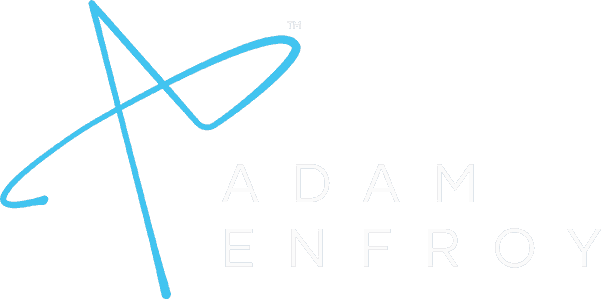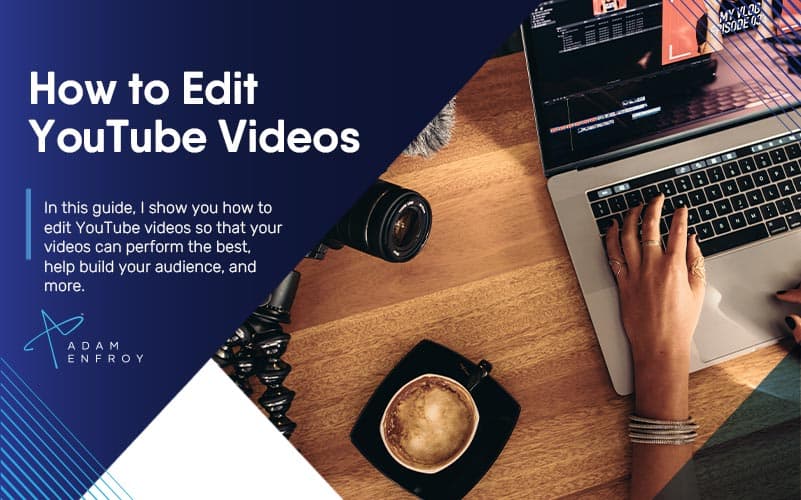Blogging vs. Vlogging: Which Is Better For Business?
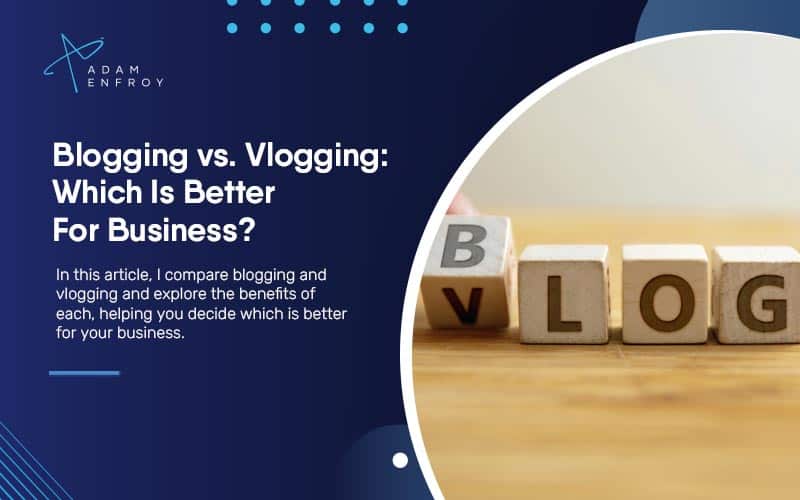
Blogging has continued to gain popularity over the years, and it’s no surprise why.
It’s a powerful communication tool that can serve as a creative outlet, marketing strategy, and community-building platform.
On the other hand, vlogging has quickly gained popularity, and vloggers use this means to reach a broader audience.
The problem is that many people wander into online content creation, not realizing that blogging and vlogging are two very different beasts.
In this article, I’ll compare blogging and vlogging and explore the benefits of each.
Whether you’re a business owner, an aspiring content creator, or someone just wanting to express yourself online, this article should help you decide which platform suits your needs.
The Benefits Of Blogging
Here are the main benefits of starting a blog.
Building A Brand
As a blogger, you can choose the niche you want to focus on and create content that best represents your brand.

Image credit: https://www.marketdesignco.com/
A business blog can be more easily integrated into a company’s website.
Additionally, while both blogging and vlogging have the potential to make money through sponsored content and advertisements, blogging allows for greater flexibility in monetization strategies.
Generating Revenue
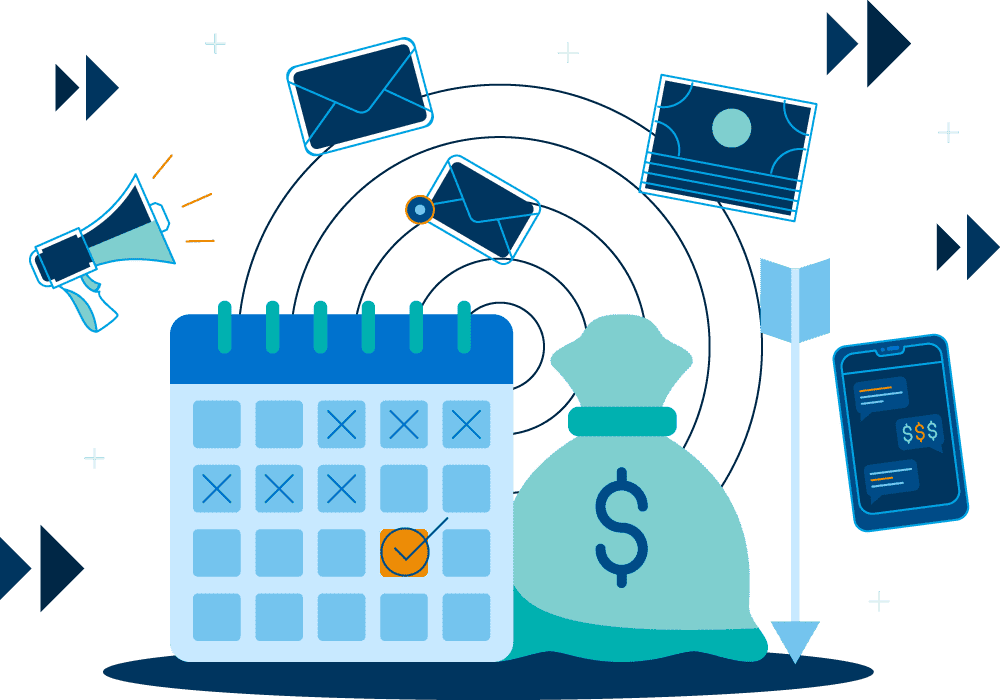
Image credit: https://eab.com/insights/
Ways to monetize a personal blog include sponsored content, affiliate marketing, and selling products and services.
Personal blogs, centered around specific interests or experiences, have been a longstanding source of income for successful bloggers.
To maintain a successful blog, create high-quality content, consistently engage with your audience, and market strategically.
Regardless of the medium, the key to becoming a lucrative influencer is providing unique content and building a loyal following.
Building Relationships

Image credit: https://www.indeed.com/
Through blogging, you can connect with your readers, respond to their questions, and show appreciation for their support through comments, social media, and other engagement channels.
Moreover, there are various blogs, from personal journals to niche-focused blogs based on a particular topic or interest.
Similarly, building relationships with other bloggers in your niche opens opportunities to collaborate and share content.
Regardless of the type of blog, the ultimate goal is to build relationships with an audience through valuable and engaging content, whether through writing or video.
Creative Outlet

Image credit: https://www.creativesdoingbusiness.com
As a creative outlet, a niche blog allows individuals to share information on topics they are passionate about.
Online marketing has played a significant role in the rise of personal blogs, as individuals have found innovative ways to monetize their content.
Unlike larger platforms, personal blogs offer more authentic and intimate content that readers can connect with on a deeper level.
Through personal blogs, individuals can share information and experiences with their audience that are unique to their perspectives.
After building a business blog, you can experiment with various forms of content, such as videos, podcasts, and images.
It allows you to express yourself differently and experiment with new concepts.
Developing Expertise

Image credit: https://www.ecomcrew.com
As bloggers establish themselves in their specific topic, they can develop expertise that translates into a strong brand online.
By consistently producing high-quality content, bloggers can increase their viewership and attract more money-making opportunities.
Additionally, well-optimized content in written form can improve search engine rankings, boosting visibility and attracting more traffic.
In both blogging (and vlogging), building expertise and creating content around a specific niche can increase profitability and establish a loyal audience.
How To Turn Your Blog Into A Money-Making Machine
Before monetizing your blog, you need to establish yourself as a credible source of information in your niche.
That is, creating high-quality content that resonates with your target audience, building a strong social media presence, and engaging with your readers regularly.
Similarly, creating different forms of content, such as videos or infographics, can attract a wider audience and increase engagement.
Once you’ve gained a loyal following, you can search for monetization opportunities aligning with your brand.
You can earn a commission by leveraging affiliate programs on your blog by promoting products or services.
Some bloggers use Google AdSense as a free and easy system to earn revenue by displaying website ads.
Google will place relevant ads on your blog posts, and you’ll collect cash based on clicks and impressions.
While AdSense won’t make you rich overnight, it’s an excellent way to earn passive income that can add up over time.
Optimizing your blog for search engines can improve your visibility and drive more traffic to your site.
Reliable web hosting ensures that your blog is accessible to your audience at all times, leading to increased trust and credibility.
If you’re an expert in a particular field, you can monetize your blog by creating online courses and sharing your expertise with others.
Platforms like Udemy, Skillshare, and Teachable make creating and selling online courses on various topics easy.
Whether you’re an expert in digital marketing, programming, or search engine optimization (SEO), you can make money in your own time with on-demand or live classes.
Connecting With Your Viewers Through Vlogging
Unlike traditional blog content, vlogging enables vloggers to create personal and authentic content that attracts viewers.
Vlogging requires a stable internet connection to upload high-quality videos regularly.
Advanced video editing software allows vloggers to enhance their video quality and add creative elements to their content.
The rise of vertical video format has made vlogs easier to consume on mobile devices.
Video platforms like YouTube and Tiktok have become popular among vloggers for sharing their content and growing their audience.
Vloggers have gained a reputation for being relatable and engaging, contributing to the popularity of vlogging.
Here are some more in-depth reasons why vlogging is an effective way to interact with your followers:
- A Personal Touch – Unlike traditional blog posts, where your words are just words on a screen, vlogging allows viewers to see you in person, hear your voice, and experience your personality. By sharing your daily life, beauty routines, or product recommendations, you create a direct connection with your viewers beyond just words.
- Variety of Vlogging Styles and Topics – Whether you’re into fashion, beauty, cooking, or gaming, there’s a vlogging niche for you. You can showcase your unique voice and interests by choosing your interest and creating content that speaks to your audience.
- Showcase your brand and personality – With the right messaging, visuals, and content, you can create a unique online persona that sets you apart from the competition. You can then build a loyal following and create lasting relationships with your viewers, leading to collaborations, brand sponsorships, and affiliate relationships.
- Versatility – Vlogging allows you to create live and pre-recorded content. You can go live on your social media platforms or showcase your pre-recorded vlogs on your website. This versatility allows you to connect with your audience in real time while giving you the option to edit and produce more polished content.
- Enhance your Vlogging Experience – Recording in prepared settings like events or public places can enhance your experience. Doing this can create a more engaging environment for your viewers to watch and experience. You can also take advantage of candid moments you would otherwise miss while recording from your home or office.
Considering A Vlog Vs. YouTube Channel
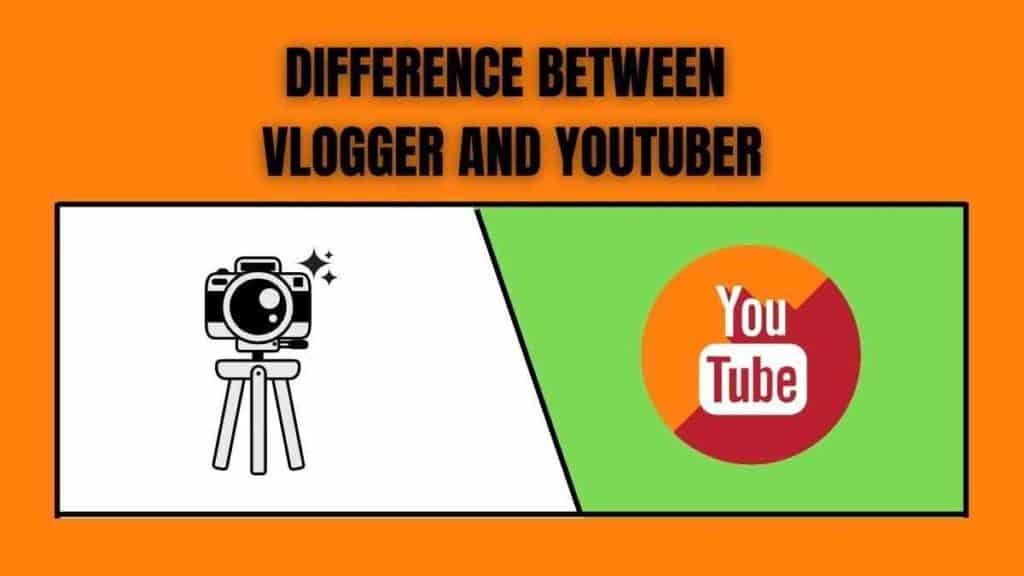
Image credit: https://www.bloggerteck.com/
In today’s digital age, video content has become popular.
Two common terms that often get confused are “vlog” and “YouTube channel.”
While both feature video content, they are not interchangeable.
Understanding the main difference between the two can help you create content that resonates well with your target audience.
As a channel that focuses on someone’s life or experience, a video blog (vlog) is a type of video content typically featuring one person talking directly to their audience.
The content creator records themselves on camera and usually offers a personal perspective on what they are doing or experiencing.
On the other hand, a YouTube channel is a platform that hosts various content creators’ videos.
It is an online hub where viewers can find a specific creator’s work in one place.
YouTube channels can showcase different types of content, including tutorials, reviews, interviews, and more.
On the other hand, a vlog is more specific in the type of content it offers, focusing on the creator’s daily life or experiences.
Vlogs follow a personal narrative as the creator takes the viewers through their daily routines.
The audience for a vlog is typically more niche, with viewers drawn to the creator’s personality or lifestyle.
On the other hand, a YouTube channel can have a wider audience with diverse interests.
The type of content offered on a YouTube channel can attract viewers from different age groups, regions, and backgrounds.
Creating a vlog requires minimal production skills.
The creator only needs to record themselves and narrate their experiences.
One can edit using mobile apps, making creating and uploading content easy.
In contrast, creating content for a YouTube channel requires more technical skills, such as using high-end cameras, microphones, and editing software.
The content must be top-notch, with creative elements that resonate well with the audience.
YouTube channels offer a greater chance for monetization than vlogs.
Advertising, affiliate marketing, sponsorships, and merchandise can generate revenue.
Also, the YouTube Partner Program allows creators to access additional features like YouTube Premium.
Vlogs tend to have a smaller audience and may have fewer opportunities to monetize their content.
Regarding earning money from your content, vlogging can be more profitable than blogging due to the higher engagement levels and potential for sponsorship deals.
However, editing videos for a vlog can be more time-consuming and require more skills than writing for a weblog.
Regarding vlog content, it’s important to balance personal insights and valuable information for the audience to keep them engaged.
On the other hand, producing a successful YouTube video requires a good blend of humor, creativity, and relevancy to the topic.
Blogging Vs. Vlogging: Which One Is For You?
Blogging is an excellent platform for those who want to share their thoughts, feelings, and opinions with their audience.
You can start creating and uploading your blog post with just a few clicks.
Blogging gives you more control over your content, and you can fully articulate your thoughts and ideas in your writing style.
Plus, it’s a great way to showcase your writing skills, which can provide great benefits when gaining recognition in your industry.
On the other hand, vlogging is an excellent platform for those who enjoy the visual medium of communication.
Vlogging allows creators to interact with their audience and gain more engagement with their content.
This platform best suits those who want to show their personality and connect with their audience more personally.
However, vlogging requires high-quality equipment and editing skills, which can take time and money.
Another point to consider is your audience.
If your target audience tends to be more visual, then vlogging may be the right platform.
Blogging may be best if your audience prefers to read long-form content.
Plus, once you’ve built a loyal audience on one platform, it’s easier to transition to another, providing ways to expand your audience reach even further.
For example, if you’ve built a blogging platform where beginners can understand the critical differences on any subject, transitioning to a vlogging platform can allow you to explain the same concepts more visually.
What One Needs To Start A Blog Or Vlog
Whether it’s software or hardware, here’s a list of the essential items you’ll need to blog or vlog:
- Computer/Laptop: A laptop or desktop computer is necessary for creating and editing content. Ensure your device can handle video processing if you want to use video.
- Webcam/Microphone: You need a webcam and microphone to record yourself or conduct interviews. There are many affordable external webcams and microphones available on the market.
- Software: Editing software is necessary for putting together your blog post or vlogs, such as Adobe Premiere Pro, Final Cut Pro X, iMovie, etc. Most of these programs come with a free trial option to test them before investing in a full version.
- Hosting/Domain Name: To start your blog or website, you must invest in reliable hosting and domain registration.
- Camera/Lighting Equipment: If you plan on shooting video for your vlogs, make sure you have the right equipment, such as cameras, tripods, lighting kits, etc.
A good quality camera and video editing software are crucial for producing engaging and professional-looking video logs when starting your vlogging journey.
Additionally, uploading and promoting videos on platforms like YouTube or Dailymotion is important for reaching a wider audience.
Starting a blog requires creating a website using platforms like WordPress and regularly creating high-quality written content.
While both blogging and vlogging require dedication and skills, there are specific resources and communities, such as YouTube Creators, that can help aspiring creators with either format succeed.
How To Place Affiliate Links Correctly
Whether blogging or vlogging, you can monetize your content by placing affiliate links.
These are links to products you recommend and for which you get a commission when someone makes a purchase.
When placing affiliate links, make them easily accessible to your audience.
You can achieve this by strategically placing call-to-actions and plugins.
Incorporating GIFs into your blog posts or videos can increase engagement and attract potential customers.
TikTok and Tumblr are great platforms to showcase your affiliate links and reach a wider audience.
Remember to be mindful of the rules and regulations surrounding affiliate links.
Be familiar with the laws in your country and mention when a link is an affiliate.
When working with affiliates, transparency is vital.
Honesty will help build trust between you and your followers.
Wrap Up.
Before getting started, it’s essential to consider the differences in the blog vs vlog debate.
Blogging focuses on delivering textual content, while Vlogging focuses on delivering video content.
Blogging is more formal and polished, while Vlogging is often raw and candid.
Vlogging has distinct advantages over blogging, such as creating real-time connections with your audience, offering versatility in content creation, and enhancing your vlogging experience by recording in public or event settings.
Whether you blog or vlog, ensure your content engages and resonates well with your target viewers.
Further reading on AdamEnfroy.com: If you want to make money on YouTube, many of the above tips still apply.
However, you’ll also need to become familiar with the YouTube algorithm and how to optimize your videos for maximum reach.
